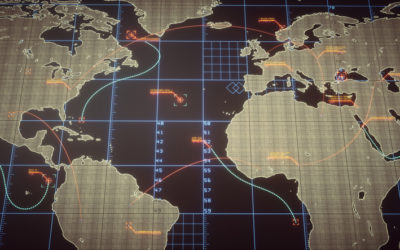
An Energy Market Check In
ENERGY — 2020 has taken a toll on the world’s energy market, but just how bad is it? Experts say COVID-19, economic shutdowns and a […] More
“The Cipher Brief has become the most popular outlet for former intelligence officers; no media outlet is even a close second to The Cipher Brief in terms of the number of articles published by formers.” —Sept. 2018, Studies in Intelligence, Vol. 62
Access all of The Cipher Brief’s national security-focused expert insight by becoming a Cipher Brief Subscriber+ Member.
Related Articles

ENERGY — 2020 has taken a toll on the world’s energy market, but just how bad is it? Experts say COVID-19, economic shutdowns and a […] More

Eric Shiraev, Political Psychologist, George Mason University “The Cipher Brief has become the most popular outlet for former intelligence officers; no media outlet is even […] More

The discovery of large gas deposits has refueled decades-old territorial disputes in the Mediterranean. In late July, Turkey announced it was dispatching a survey ship […] More

Earlier this Spring, an oil tanker from Iran arrived in Venezuela with a much-needed delivery, despite the fact that both nations are under US sanctions. […] More

Global markets responded on Monday to fears of a second-wave of coronavirus infections and one of the industries feeling the pressure is the gas and […] More

The global pandemic caused by COVID-19 has added a significant layer of uncertainty to an already complicated situation in the Middle East. The Cipher Brief […] More
Search